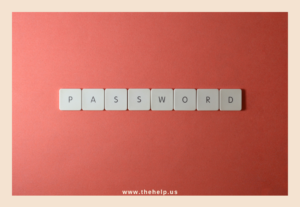
I have signed up yet again for another account which requires me to create new login credentials. As usual, it will ask for a unique username and password. Gone are the days when you would just write down your password in a password tracking booklet. By now, you (and I) probably have a gazillion accounts, all of which require passwords that are at least 8 characters long. To manage these passwords, I now use an online password manager.
I had no problems with my password manager until the most recent LastPass security breach. The company has yet to provide information on how many password vaults have been compromised and how many users were affected by the breach. This incident has left me (and a lot of people) thinking: is it time to ditch this password manager, and if so, what are the alternatives?
Lastpass, along with others like these listed below are cloud based password management solutions that help end users manage their ever growing password lists online by storing their online passwords in an encrypted format. Here are some other examples of password management tools:
- Keeper Enterprise Password Management
- ManageEngine Password Manager Pro
- Specops Software Password Management Tools
- Dell Password Manager
- 1Password Business
- Hitachi ID Bravura Pass
- Zoho Vault
- SailPoint Password Management
- 1Password
- Bitwarden
- Dashlane
- KeePassXC
- NordPass
- Keeper
- Password Safe
Most of the solutions listed above have enterprise grade security. However, that feature does not come cheap. Some of these tools are quite expensive. It got me thinking: is my password manager safe from a breach, are there other options aside from password managers?
Browser love
I could use the browser based password managers in the meantime, for basic password management. Most web browsers have a basic level password manager. (You will notice this password management feature when Google Chrome or Mozilla Firefox asks you if you’d like to save a password. Yes, it’s that basic.) This is a rudimentary solution but at least it’s better than having to re-use your passwords – or worse, use “1234” or “password” as your password (The top 2 most commonly used passwords used – if you’re guilty of doing this, stop.)
Google has a new and improved password manager built into Chrome that’s slightly better than the rest, but it’s still not as full-featured, or widely supported as a dedicated password manager like those listed above. Apple’s Keychain Access also works nicely and integrates well with Apple’s Safari web browser. The main problem is that if you have any non-Apple devices, you won’t be able to sync your passwords to them, since Apple doesn’t make apps for other platforms.
Passkeys and whatnots
I could use Passkeys. Passkeys are generated cryptographic keys managed by your device. They’re generated as key pairs instead of passwords, so there’s nothing to remember. However, Passkeys are managed by your device, namely Apple, Google, and Microsoft. That is a single point of failure – and historically bound to happen.
Choices, choices, choices. I think I’ll stick to my password manager for now (for the curious, it’s Zoho Vault). It not only helps me track passwords but generates strong passwords for me to use as well as other helpful features. I won’t leave anything up to chance though, and should make it a point to use best security practices for all my accounts. I’ll share 5 best practice tips with you next time.
Do you use a password manager? Are you happy with the password manager you use? Share your thoughts with us in the comments. Remember to work smart and be a blessing to someone today. Stay safe and healthy!
Written by Jaie O. TheHelp